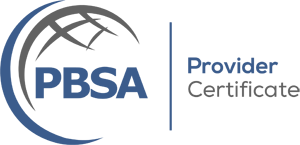The Importance of Education Verifications in Background Screening

<p>Education verifications are a critical component of the background screening process for employers seeking to make informed hiring decisions. While candidates may provide educational credentials on their resumes, verifying the accuracy and legitimacy of these claims is essential to ensure that they possess the qualifications necessary for the job. In this blog post, we'll explore why education verifications are crucial and how they contribute to a more reliable and trustworthy hiring process.</p><h4>Confirming Qualifications:</h4><p>Education verifications allow employers to confirm that candidates possess the educational qualifications required for the position.</p><p>Verifying degrees, diplomas, and certifications ensures that candidates have the knowledge and skills necessary to perform their job duties effectively and contribute to the success of the organization.</p><h4>Preventing Credential Fraud:</h4><p>Credential fraud is a prevalent issue in the hiring process, with some candidates falsifying or exaggerating their educational achievements.</p><p>Education verifications help prevent credential fraud by confirming the authenticity of the educational institutions attended and the degrees or certifications obtained by candidates.</p><p>This safeguards employers from hiring individuals who may lack the qualifications claimed on their resumes, reducing the risk of hiring unqualified or dishonest candidates.</p><h4>Maintaining Industry Standards:</h4><p>In certain industries, such as healthcare, finance, and education, strict standards and regulations govern the qualifications and credentials required for employment.</p><p>Education verifications ensure compliance with industry standards and regulatory requirements by confirming that candidates meet the necessary educational criteria for their respective roles.</p><p>This helps maintain the integrity of the industry and ensures that employees possess the knowledge and expertise needed to uphold professional standards and deliver quality services.</p><h4>Protecting Reputation and Trust:</h4><p>Hiring individuals with misrepresented or falsified educational credentials can damage an organization's reputation and erode trust with customers, clients, and stakeholders.</p><p>Education verifications help protect the reputation and integrity of the organization by ensuring that employees are qualified and competent to perform their job responsibilities.</p><p>This builds trust and confidence in the organization's ability to deliver reliable and high-quality products or services, enhancing its competitive advantage in the market.</p><h4>Legal Compliance:</h4><p>Employers have a legal obligation to ensure that their hiring practices comply with applicable laws and regulations, including those related to education verification. Conducting education verifications helps employers demonstrate due diligence in their hiring process and mitigates the risk of legal liabilities associated with negligent hiring or discriminatory practices.</p><p>By adhering to legal requirements and best practices for education verification, employers can minimize the risk of legal disputes and protect themselves from potential litigation.</p><p>Education verifications play a vital role in the background screening process, providing employers with confidence in the qualifications and credentials of their candidates. By confirming educational achievements, preventing credential fraud, maintaining industry standards, protecting reputation and trust, and ensuring legal compliance, education verifications contribute to a more reliable, transparent, and trustworthy hiring process. Employers should prioritize education verifications as part of their overall background screening strategy to make informed hiring decisions and build a skilled and qualified workforce.</p><p>Written by <a href="https://www.linkedin.com/in/justinleavitt/">Justin Leavitt</a></p><p>Justin is the Co-Founder and CFO of <a href="https://westernverify.com/">Western Verify</a>, and spends his free time traveling with his family and trying his best to golf.</p>

Justin is the Co-Founder and CFO of Western Verify, and spends his free time traveling with his family and trying his best to golf.


